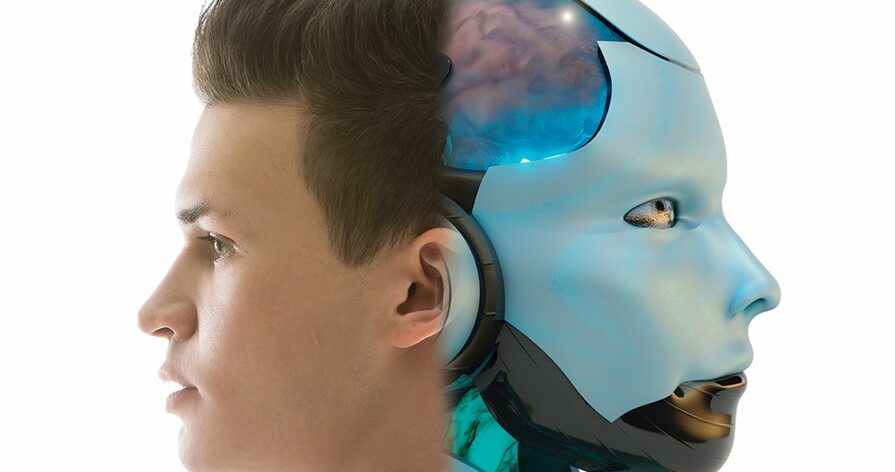This article first appeared in June’s print edition of Business Monthly.
Business leaders are quickly realizing artificial intelligence (AI) will be an indispensable tool to guarantee growth regardless of their sector. “We are on the brink of a technological revolution that could jumpstart productivity, boost global growth and raise incomes around the world,” IMF Managing Director Kristalina Georgieva said in a January blog post.
The revolution is impacting global job markets. “Historically, automation and information technology have tended to affect routine tasks, but one of the things that sets AI apart is its ability to impact high-skilled jobs,” a January IMF Analysis paper said. It forecasts 40% of jobs in emerging markets will be affected by AI.
To protect their careers in the AI era, employees need to improve their technical and personal skills, mindsets and office politics. “The question on many minds is, ‘How can I protect my job from AI?'” Hireduo Resources Private Limited, an HR consultancy, said in a February LinkedIn blog post.
AI future
The idea that jobs will change significantly because of increasingly advanced technologies started before the commercialization of generative AI (GenAI), which “understands” natural language and responds using available online data.
In 2019, three years before the launch of ChatGPT, the first free GenAI tool, the OECD predicted that “within 15 to 20 years .. new automation technologies are likely to eliminate 14% of the world’s jobs and radically transform another 32%.”
In 2020, a World Economic Forum report estimated 85 million jobs worldwide could be eliminated by 2025. An undated report from PricewaterhouseCoopers said by the “mid-2030s, up to 30% of jobs could be automatable.”
Those are “sobering numbers,” Jorge Tamayo, an assistant professor at Harvard Business School, said in a September blog. “And they didn’t even factor in ChatGPT and the new wave of GenAI that has … taken the market by storm.”
Brandon Cornett, a reporter for MachineWatch, a newsletter focusing on AI, said in a September blog on Linkedin two “facts” have emerged since ChatGPT launched: AI is currently advancing faster than ever and its pace is accelerating, and AI will soon be able to do almost everything an office worker does.
That means the job market “will experience a combination of AI-related job loss, job modification, corporate restructuring and even workplace augmentation scenarios (where humans and AI team up to get the job done).”
Research published in January by Nexford University estimated AI can add “$13 trillion … to economic activity … by 2030, or about 16% higher cumulative GDP.” That will mainly come from the “substitution of labor by automation and increased innovation in products and services.”
Employees whose skills become redundant because of AI will find it increasingly challenging to find new jobs. “By 2030, … simulation shows that some 70% of companies will have embraced the AI revolution,” said Nexford University’s report.
Risky vs. safe jobs
Nexford’s research found that customer service representatives are among the jobs most at risk. Most customer queries now happen on digital platforms instead of a telephone. In addition, “queries and problems of customers are repetitive,” and they “do not require high emotional or social intelligence.”
Other client-facing jobs at risk include receptionists; salespeople, as “advertising has shifted toward web and social media landscapes”; insurance underwriting and retail.
AI also could threaten backend jobs requiring specialized and advanced skill sets. The Nexford report cited accountants and bookkeepers, research and analysis, and warehouse management.
However, other occupations will likely remain safe as GenAI proliferates. The Nexford report’s list includes teachers; lawyers and judges; directors, managers and CEOs; and human resources professionals.
Also safe are psychologists and psychotherapists; surgeons; computer system analysts, who “run maintenance work, update, improve, correct and set up complex software and hardware systems”; and artists and writers.
AI impact
Bernard Marr, author of “Generative AI in Practice: 100+ Amazing Ways Generative Artificial Intelligence is Changing Business and Society,” said the first step for employees to keep their jobs in the coming AI era is to educate themselves.
In a March blog on Forbes, Marr stressed employees first need to come to grips with gen AI. “Learn what it can do, play with tools like ChatGPT to see what they’re capable of, use it in your free time and have fun with it,” he said.
The next step is to research AI’s potential impact on their job description. “Once you have a good idea of what generative AI can do, compare that to your job,” Marr said. “How might the work you do change because of generative AI? It’s unlikely that generative AI will replace your job altogether … It can probably take on some of your daily tasks.” Nevertheless, such streamlining could entice companies to lay off employees or reduce hiring by merging jobs “exposed to AI.”
Safety in skills
Formal training is essential, shifting from helping employees “excel at [their] work to rise to the top, [to] needing it … just to stay afloat,” noted Cornett of MachineWatch. Such training is accessible, as Marr said, “There are tons of free (and paid) courses … that cover the gamut of generative AI education.”
That can pressure employees to allocate time to identify trends and receive training. “Monitoring industry trends ensures you not only maintain your current skill set but also anticipate the skills of the future,” said Hireduo Resources.
Beyond technical proficiency, employees need to advance their soft skills. “Knowing how to work effectively with AI is important,” noted Marr. “It’s also important to [be proficient] with [what] AI can’t do.”
That includes “creativity, complex decision-making, strategic thinking, leadership empathy [and] interpersonal relationships,” Marr said. A July 2023 survey by Upskill Training found the top three in-demand cognitive skills are problem-solving, creativity, and the ability to learn. Hireduo Resources said those are “innate qualities that make us distinctly human.”
Emotional intelligence is another human skill “AI cannot replicate,” Hireduo Resources said. “Emotional intelligence can become the catalyst for fostering a positive work environment.”
Cultivating diverse technical and soft skills is also essential. “Cross-functional training positions you as a dynamic professional capable of contributing to a wide array of tasks and projects,” said Hireduo Resources. That makes you a “coveted asset.”
Find your place
Good old-fashioned office politics is another factor that can make employees indispensable. “AI won’t take your job; it’s somebody using AI that will take your job,” said Richard Baldwin, a professor at Geneva Graduate Institute, at a World Economic Forum session in May 2023.
Employees must “position [themselves] as someone who can harness GenAI in [their] work,” Marr said. It usually starts by using AI to “polish an email … use it as a productivity tool, brainstorm ideas, summarize a lengthy report [and] assist in content refinement.”
Employees can also become indispensable if they complement the intrinsic limitations of AI-powered tools. “They don’t do so well when there are a lot of ‘moving parts’ involved, such as multiple interconnected teams and processes,” Cornett explained. “That’s where [human] problem solvers … come in.”
Accordingly, an employee should build a reputation as a “fixer,” said Cornett. “You’ll be able to protect your current job and improve your candidacy for other jobs. You want to be the one they call when a creative solution is needed.”
Focusing on a niche part of the company’s organization is also an effective strategy. Hireduo Resources said employees must become “savvy professionals who embrace the idea of specializing in niche areas — carving out a unique space where their skills and expertise are indispensable.”
Those “niches” require attaining “Industry-specific knowledge and expertise, [acting as] potent shields against the automation tide,” Hireduo Resources said. “While AI excels at processing vast amounts of data, it lacks the contextual understanding that comes from years of immersion in a specific field.” Ultimately, an employee needs to become a “linchpin. The person colleagues turn to for insights that extend beyond algorithms.”
Having an extensive professional network is also vital. Hireduo Resources stressed it “is not just a recommendation — it’s a strategic imperative.” Cultivating such a network goes beyond “merely expanding your contact list; it involves creating a support system, gaining insights and securing opportunities in the ever-evolving realm of work.
Compensation question
With AI making employees more productive by relieving them of repetitive and time-consuming routine tasks and making them more organized and insightful, “it’s tempting to believe wages will evolve,” Megan Morrone, BBC’s features correspondent, said in July. “After all, if job descriptions are changing and workers are contributing more, compensation should theoretically follow.”
However, a 2019 Massachusetts Institute of Technology report noted, “The implications of technological change for employment and wages are a source of controversy.”
Automation “reduces the labor share in industry value added and tends to reduce the overall labor share in the economy.” That means “slower wage growth … The reason why we have had rapid wage growth and stable labor shares in the past is a consequence of other technological changes that generated new tasks for labor and counterbalanced the effects of automation on task content.”
Another reason wages would be unlikely to increase is the nature of capitalism. “Average labor productivity has grown faster than the average real wage … What this suggests is that only part or even none of the productivity gains … are shared with workers,” said an undated study by the White House Council of Economic Advisors.
Morrone said extra revenues are “generally absorbed by the company, [going] to shareholders and not to salaries.”
Another phenomenon arising from the proliferation of AI is a narrowing of the pay gap between experts and AI users. In July, David Autor, an MIT economics professor, told the BBC, “AI may be able to lower the barrier to entry for highly skilled positions by eliminating the need for a traditional, elite higher education usually required for a top role.”
That means “the experts who were once scarce might see a dip in their wages as they see more competition in the labor market,” Marrone said. “More workers – and a more diverse pool at that – would receive a higher salary than they might currently be making in lower-skilled jobs” with no support from AI.







